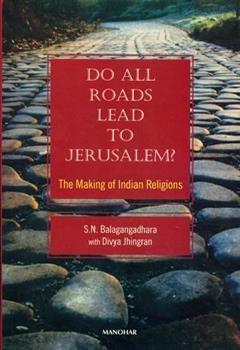Do All Roads Lead to Jerusalem?: The Making of Indian Religions
no information available
Do All Roads Lead to Jerusalem? traces the history of western encounters with other cultures on two occasions – the ‘pagans’ of Greece and Rome and the ‘heathens’ in India. The West has pro-duced many descriptions of other cultures. A close examination of these descriptions reveals that they tell us more about western culture than about the cultures the West has attempted to describe. This over-arching theme is developed by examining one element in western culture viz. religion. This book argues that religion is not a cultural universal and the belief that all cultures have religion is an assumption on the part of all scholars of religion. The reason for this is that western culture has been shaped by religion so that members of this culture are conceptually compelled to describe other cultures from within the framework of religion. From Biblical scholarship to the Enlighten-ment from the Reformation to the Romantics from believers to atheists the cognitive scheme is the same – one that has been set in place by the experiential framework of Christianity. Is it any wonder that members of such a culture saw religion wherever they went? By means of methodical arguments and lucid explanations this book demonstrates that religion is not a cultural universal and explains why it is believed to be so. Scholars in the field of religious and cultural studies will find this work illuminating original and deeply compelling. About the Author S.N. Balagangadhara is a Professor Emeritus and was the Director of the Research Centre Department of Comparative Science of Cultures (Verge-lijkende Cultuurwetenschap) at Ghent University Belgium. Divya Jhingran studied western philosophy and has done re-search on theory and practice in the Indian traditions. She lives in New York.
... Read more Read less










